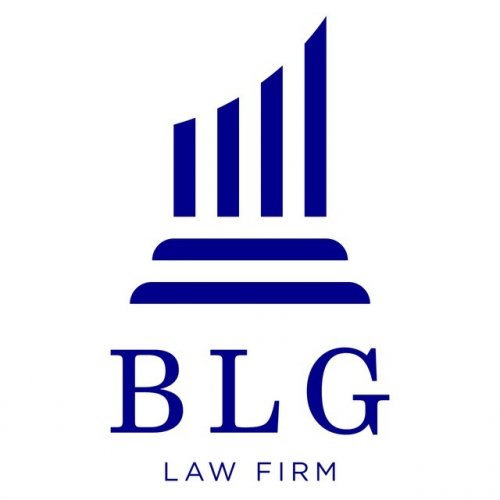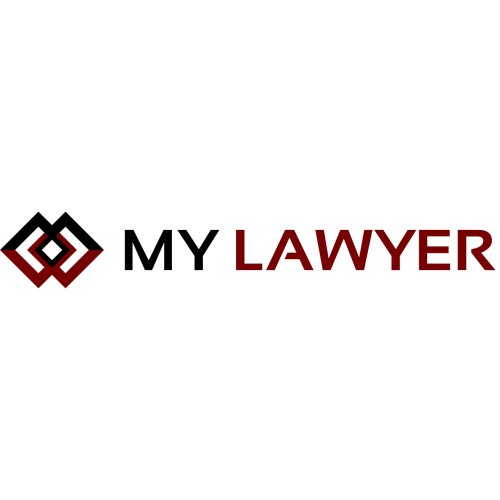Best Renewable & Alternative Energy Lawyers in Tashkent
Share your needs with us, get contacted by law firms.
Free. Takes 2 min.
List of the best lawyers in Tashkent, Uzbekistan
About Renewable & Alternative Energy Law in Tashkent, Uzbekistan
Renewable and alternative energy is a growing sector in Tashkent, Uzbekistan, as the country transitions toward sustainable energy solutions. Historically reliant on fossil fuels, Uzbekistan is experiencing a shift driven by government incentives, international partnerships, and increasing local and foreign investment. Laws and regulations are emerging rapidly to support the development, production, and usage of solar, wind, hydro, and other renewable sources. Navigating these new legal frameworks is crucial for businesses, investors, and individuals engaged in the renewable energy field.
Why You May Need a Lawyer
Legal assistance in renewable and alternative energy can be essential for a variety of reasons. Here are common situations when a lawyer's expertise can be beneficial:
- Establishing or investing in renewable energy projects, such as solar or wind farms
- Navigating the licensing and permitting process required by local authorities
- Drafting and negotiating contracts for equipment purchase or project development
- Understanding and securing government incentives or tax benefits for renewable energy investments
- Ensuring compliance with safety, environmental, and operational regulations
- Resolving land use or property rights issues associated with renewable installations
- Handling disputes with contractors, suppliers, or regulatory bodies
- Protecting intellectual property, including innovations in renewable technologies
- Advising on cross-border transactions and international partnerships
- Staying updated with frequently changing energy laws and policies
Local Laws Overview
Renewable and alternative energy law in Tashkent is governed by a combination of national legislation and local regulations. Key aspects include:
- Legal Framework: The Law of the Republic of Uzbekistan "On the Use of Renewable Energy Sources" defines the types of renewable sources and establishes general principles for their use, rights, and obligations of participants.
- Licensing and Permits: Energy producers generally require licenses and permits from the Ministry of Energy and related authorities. The process includes environmental impact assessments and adherence to technical standards.
- Support Measures: The government offers various incentives such as tax exemptions, customs duty waivers, and preferential loans to encourage investment in renewables.
- Land Use: Land allocation for energy projects is regulated by specific zoning and public land use rules, which may require negotiation with local authorities.
- Grid Connection: Legal provisions outline conditions and fees for connecting renewable facilities to the national grid, as well as the rights to sell electricity to the market.
- Environmental Compliance: Environmental protection laws apply to all energy projects, requiring assessments to minimize negative impacts.
- Foreign Investment: Laws generally enable and protect foreign investment, but specific compliance with national ownership and operational requirements is required.
- Recent Amendments: Laws and regulations are evolving rapidly, so it is essential to stay informed about new legal acts, policies, and administrative guidance.
Frequently Asked Questions
What qualifies as renewable or alternative energy in Uzbekistan?
Renewable energy includes sources such as solar, wind, hydropower, geothermal, and biomass. Alternative energy may also cover advanced technologies aimed at reducing environmental impact.
Is it legal for private individuals or businesses to generate their own renewable energy in Tashkent?
Yes, private individuals and businesses can generate electricity using renewable sources, provided they comply with licensing, safety, and environmental regulations.
What government incentives exist for renewable energy projects?
Incentives may include tax exemptions, customs privileges, and sometimes preferential loans or subsidies. Eligibility and conditions are subject to change, so legal advice is recommended.
Do renewable energy projects require environmental permits?
Most large-scale projects require an environmental impact assessment and compliance with environmental protection rules before operations begin.
How can I sell the excess electricity I generate to the national grid?
Producers may sell surplus electricity to the national grid, but they must meet technical requirements and obtain the necessary agreements with the grid operator and government authorities.
Are there any restrictions on foreign investors in renewable energy in Uzbekistan?
Foreign investors are generally welcome and protected, but they must comply with national laws, including those related to licensing, land acquisition, and corporate structure.
How do I obtain permits for a renewable energy project?
Permit procedures involve applications to relevant ministries and agencies, submission of technical documents, and potentially a public hearing or environmental review.
What are the penalties for non-compliance with renewable energy regulations?
Penalties may range from fines and suspension of operations to revocation of permits in severe cases. Compliance with all regulations is crucial.
How can a lawyer help with a renewable energy business in Tashkent?
A lawyer can assist with due diligence, corporate structuring, contracts, permits, compliance, negotiations, dispute resolution, and keeping you updated on legal changes.
Where can I find official information and updates about renewable energy regulations?
Official government portals, the Ministry of Energy, and registered legal consultants offer the most reliable and up-to-date information on law and policy changes.
Additional Resources
If you require further information or assistance, the following organizations and resources can be helpful:
- Ministry of Energy of the Republic of Uzbekistan - The main governmental body for energy policy, including renewables
- State Committee for Ecology and Environmental Protection - Oversees environmental compliance and impact assessments
- Chambers of Commerce and Industry - Faculties for business networking and legal support
- International Finance Corporation (IFC) and Asian Development Bank (ADB) - Programs and financing for renewable energy development
- Local legal firms specializing in energy law - Provide tailored advice for investments, compliance, and dispute resolution
Next Steps
If you are considering launching or investing in a renewable or alternative energy project in Tashkent, follow these steps:
- Clearly define your project or investment goals and gather all relevant documentation
- Consult with a qualified legal expert who specializes in renewable and alternative energy law in Uzbekistan
- Identify applicable laws, regulations, and permit requirements for your planned activities
- Prepare and submit all necessary applications for licenses, permits, and approvals
- Maintain ongoing compliance with all legal requirements, including environmental and safety standards
- Stay informed by checking updates from government bodies and your legal advisor
Taking these steps will help you confidently navigate the complex legal landscape of renewable and alternative energy in Tashkent, Uzbekistan.
Lawzana helps you find the best lawyers and law firms in Tashkent through a curated and pre-screened list of qualified legal professionals. Our platform offers rankings and detailed profiles of attorneys and law firms, allowing you to compare based on practice areas, including Renewable & Alternative Energy, experience, and client feedback.
Each profile includes a description of the firm's areas of practice, client reviews, team members and partners, year of establishment, spoken languages, office locations, contact information, social media presence, and any published articles or resources. Most firms on our platform speak English and are experienced in both local and international legal matters.
Get a quote from top-rated law firms in Tashkent, Uzbekistan — quickly, securely, and without unnecessary hassle.
Disclaimer:
The information provided on this page is for general informational purposes only and does not constitute legal advice. While we strive to ensure the accuracy and relevance of the content, legal information may change over time, and interpretations of the law can vary. You should always consult with a qualified legal professional for advice specific to your situation.
We disclaim all liability for actions taken or not taken based on the content of this page. If you believe any information is incorrect or outdated, please contact us, and we will review and update it where appropriate.

















